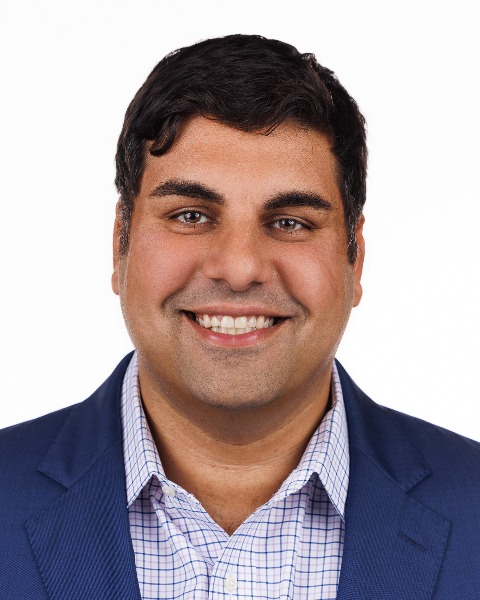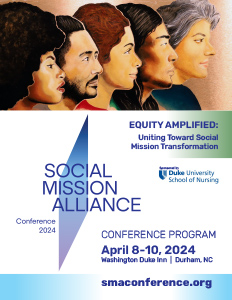Concurrent Breakout Sessions
Advocacy in Healthcare Recruitment: The CGFNS Alliance's Role in Safeguarding Migrant Nurses
Tuesday, April 9, 2024
11:40 AM - 11:55 AM East Coast USA Time
Location: Biddle

Mukul Bakhshi, JD
Chief Global Affairs Officer
CGFNS International, Inc.
Philadelphia, Pennsylvania, United States
Presenter(s)
Proposal: Global nurse shortages and increasing interest in the international recruitment of healthcare professionals mark the United States’ healthcare system in the aftermath of the COVID-19 pandemic, underscoring the imperative for establishing a sustainable nursing workforce in the U.S. The role of collaboration across the healthcare sector in safeguarding our nursing workforce and creating programs that advocate for migrant healthcare workers cannot be understated.
This presentation highlights the Alliance for Ethical International Recruitment Practices’ (Alliance) Certification Program. Given the lack of regulation in this area, The Alliance, a division of CGFNS International, Inc., serves as a primary safeguard for migrant nurses—educating them about their rights and responsibilities, advocating for fair and transparent recruitment practices, and protecting them from unscrupulous actors and practices such as information asymmetry and restrictive contracts with excessive breach fees. This work is done primarily through the implementation of the Alliance’s ethical Code, which sets best practices for international recruitment as established by stakeholders across healthcare including nurses’ associations, labor unions, and recruitment firms.
Collaborative programs like this are vital to the healthcare sector in safeguarding the rights of both immigrant and domestic healthcare workers, as bad practices that thrive in the international recruitment landscape can grow to permeate the domestic workforce. Multistakeholder cooperation can help bar bad practices such as repayment provisions and holding down wages—practices that plague both foreign- and domestically-educated healthcare professionals—and help to bolster diverse pathways for those entering the healthcare workforce.
The Alliance’s Code and Certification Program serve as examples of collaboration among different entities across the healthcare sector. Through this and other continued partnerships, hospitals, healthcare associations, recruitment firms, and other stakeholders can collectively move the needle on the issue of ethical recruitment and employment of healthcare workers and push others throughout the industry to adhere to the highest ethical standards—protecting the rights of both immigrant and domestic nurses, safeguarding vulnerable health systems in lower-income countries, and advancing global health equity.
This session will be led by Mukul Bakhshi, Alliance Director and Chief Global Affairs Officer of CGFNS International, the world’s leading credentials evaluation organization for nursing. Mr. Bakhshi advocates for efficient regulation that promotes public safety and enables health workers to leverage their skills. He has written extensively about nursing workforce issues, has presented at the UN and WHO on nurse recruitment, and currently serves on the WHO Technical Expert Group on bilateral agreements in healthcare recruitment.
This presentation highlights the Alliance for Ethical International Recruitment Practices’ (Alliance) Certification Program. Given the lack of regulation in this area, The Alliance, a division of CGFNS International, Inc., serves as a primary safeguard for migrant nurses—educating them about their rights and responsibilities, advocating for fair and transparent recruitment practices, and protecting them from unscrupulous actors and practices such as information asymmetry and restrictive contracts with excessive breach fees. This work is done primarily through the implementation of the Alliance’s ethical Code, which sets best practices for international recruitment as established by stakeholders across healthcare including nurses’ associations, labor unions, and recruitment firms.
Collaborative programs like this are vital to the healthcare sector in safeguarding the rights of both immigrant and domestic healthcare workers, as bad practices that thrive in the international recruitment landscape can grow to permeate the domestic workforce. Multistakeholder cooperation can help bar bad practices such as repayment provisions and holding down wages—practices that plague both foreign- and domestically-educated healthcare professionals—and help to bolster diverse pathways for those entering the healthcare workforce.
The Alliance’s Code and Certification Program serve as examples of collaboration among different entities across the healthcare sector. Through this and other continued partnerships, hospitals, healthcare associations, recruitment firms, and other stakeholders can collectively move the needle on the issue of ethical recruitment and employment of healthcare workers and push others throughout the industry to adhere to the highest ethical standards—protecting the rights of both immigrant and domestic nurses, safeguarding vulnerable health systems in lower-income countries, and advancing global health equity.
This session will be led by Mukul Bakhshi, Alliance Director and Chief Global Affairs Officer of CGFNS International, the world’s leading credentials evaluation organization for nursing. Mr. Bakhshi advocates for efficient regulation that promotes public safety and enables health workers to leverage their skills. He has written extensively about nursing workforce issues, has presented at the UN and WHO on nurse recruitment, and currently serves on the WHO Technical Expert Group on bilateral agreements in healthcare recruitment.
Learning Objectives:
- Critically assess and propose strategies within nursing education that address international recruitment and health workforce sustainability challenges while fostering the development of future nurse leaders.
- Propose collaborative strategies and standards to uphold ethical practices in healthcare recruitment and retention, demonstrating best practices for safeguarding the rights of both migrant and domestic healthcare workers.
- Identify and propose sustainable strategies within the U.S. healthcare system to build a stable and diverse nursing workforce, addressing the challenges posed by the global nursing shortage.
- Analyze the impact of voluntary agreements like the Alliance's Certification Program on labor rights advancement and the synergy between such initiatives and unionization efforts in safeguarding and promoting labor rights.
- Assess the challenges of balancing workforce shortages with healthcare professionals' rights to see opportunities abroad, proposing ethical recruitment approaches that minimize strain on vulnerable healthcare systems in source countries.

